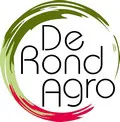Radishes are not an unknown product among Dutch growers. Nevertheless, they are mostly grown in greenhouses. But radishes are also grown outdoors in the Netherlands. A challenging crop, but one that leads to much appreciation. This is explained by Rob de Rond of De Rond Agro, who himself started growing radishes several years ago.

The company is now in its fourth growing season and has noticed that there is an appreciation for outdoor radishes. "We started in 2020," Rob explains. "This was actually because a customer came to us asking if we would try radishes in open ground. They noticed, especially around the hot high summer months, that the internal quality of greenhouse radishes was deteriorating. They then mainly bought in from countries like England or Germany around this period, but wondered if it wasn't possible to grow outdoor radishes here as well. So 1 plus 1 turned out to 2 and they ended up with us."

From start to finish, everything has to be right
"We did want to go ahead with it," the grower continues. "Only, of course, there is a reason why it has not been grown outdoors in the Netherlands before. Radish has a very short, but therefore difficult cultivation. Actually, everything has to be 100 per cent right from start to finish, otherwise there are simply no ways to fix things during cultivation. That starts with sowing, which has to be at exactly the right depth and far enough apart. Otherwise, you are already 3-0 behind, and you are not going to make up for it. In the greenhouse, it is possible to control the climate much more in, for instance, watering. If it rains at our place, it rains. Even if we don't want it to. In the greenhouse, you can water when you need to. It is also the reason we grow on higher sandy soils, so we can steer and harvest on more workable days. This year, of course, with all the rain, has been very challenging. We also lost seedlings because the quality was not up to par."

Insects and fungi also remain a challenge. "Of course they also suffer from them in the greenhouses, but there the climate can be controlled better anyway. In open ground cultivation, few if any agents are allowed in, so we try to tackle this problem as sustainably and preventively as possible. You have to be very aware of this in this cultivation. Once fungi or insects have entered the crop, there is virtually nothing you can do about it. It really has to be preventive, partly because of the short cultivation, and so we are also very alert to that."
Experience
It ensures that many still opt to go into the greenhouse for security, but with De Rond Agro, Rob wanted to take on the adventure. "Still, I can't actually recommend it to anyone," he laughs. "Everything just has to be right, and to make sure that happens you need years of experience. Every year we learn, like this year with a lot of rainfall and relatively little sun."

"We start sowing in early spring. We try to ensure that we can start harvesting as early as possible, but also that we can continue as long as possible. But everything hinges on quality, of course. We have to compete in qualitatively perfect radishes, so the bar for us is also very high. The radishes look good, and we get fine volumes during the season."
Forest radish or loose radish
Overall, Rob does expect continued demand for radishes. "Many countries now only offer forest radishes. In many countries around us, these bunches are made by hand. Labour costs are rising quickly, and you see some foreign growers quitting because the costs no longer outweigh the benefits. The question then remains whether these bunch radishes will eventually be replaced by loose radishes. Time will tell," Rob concludes.

For more information:
Rob de Rond
De Rond Agro
Gors 127
4741 TC Hoeven
0165-312314
info@derondagro.nl
www.derondagro.nl
